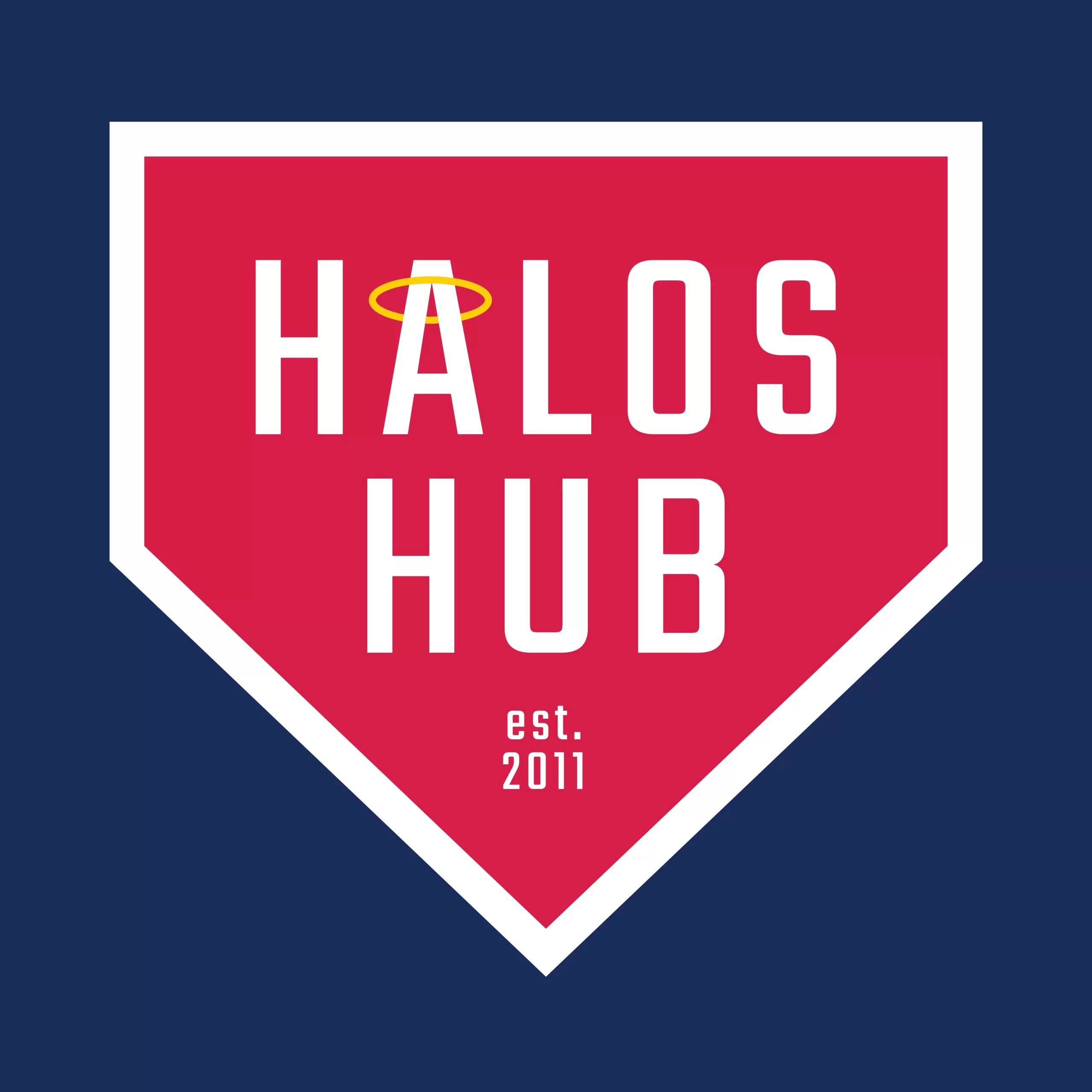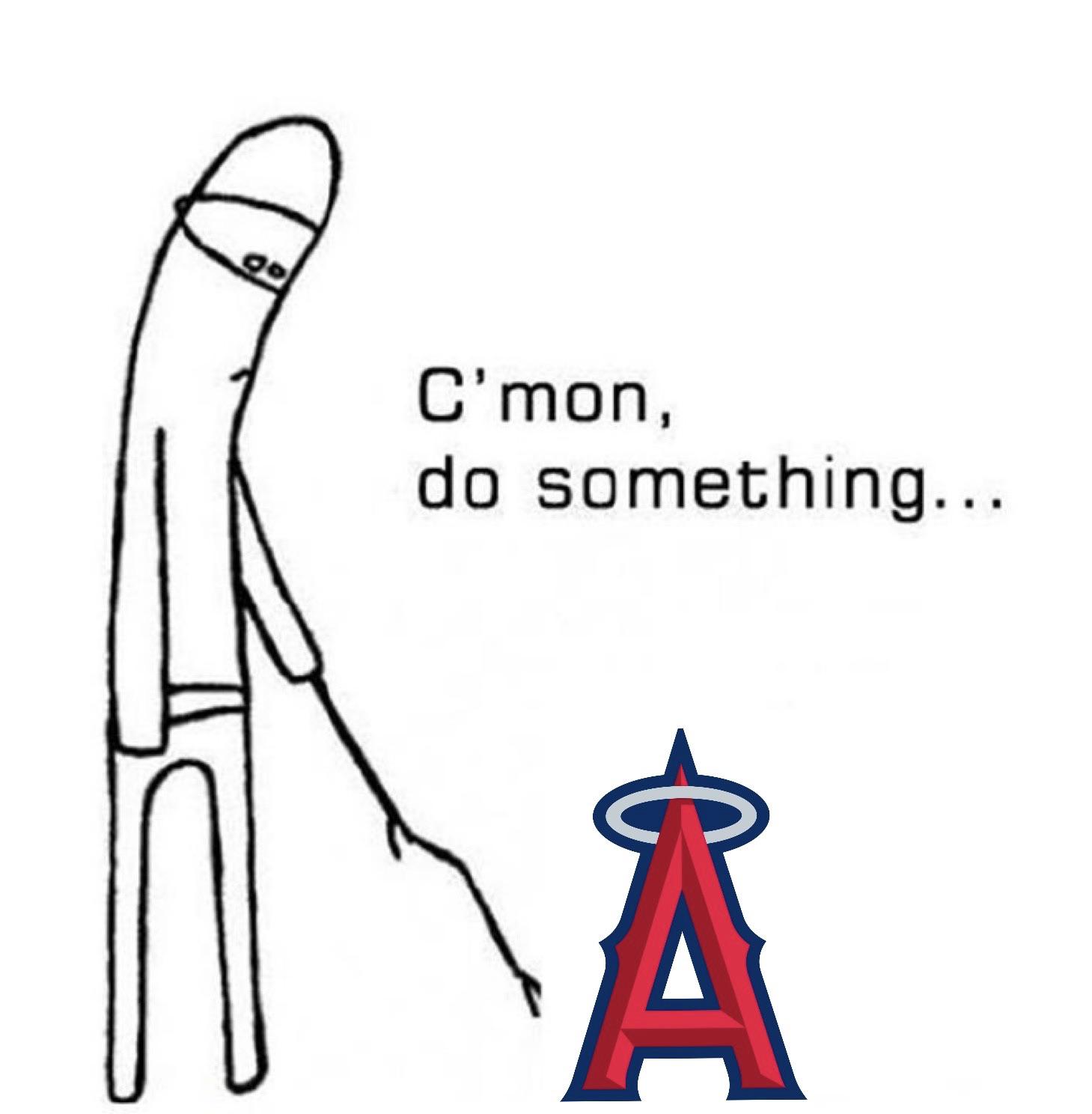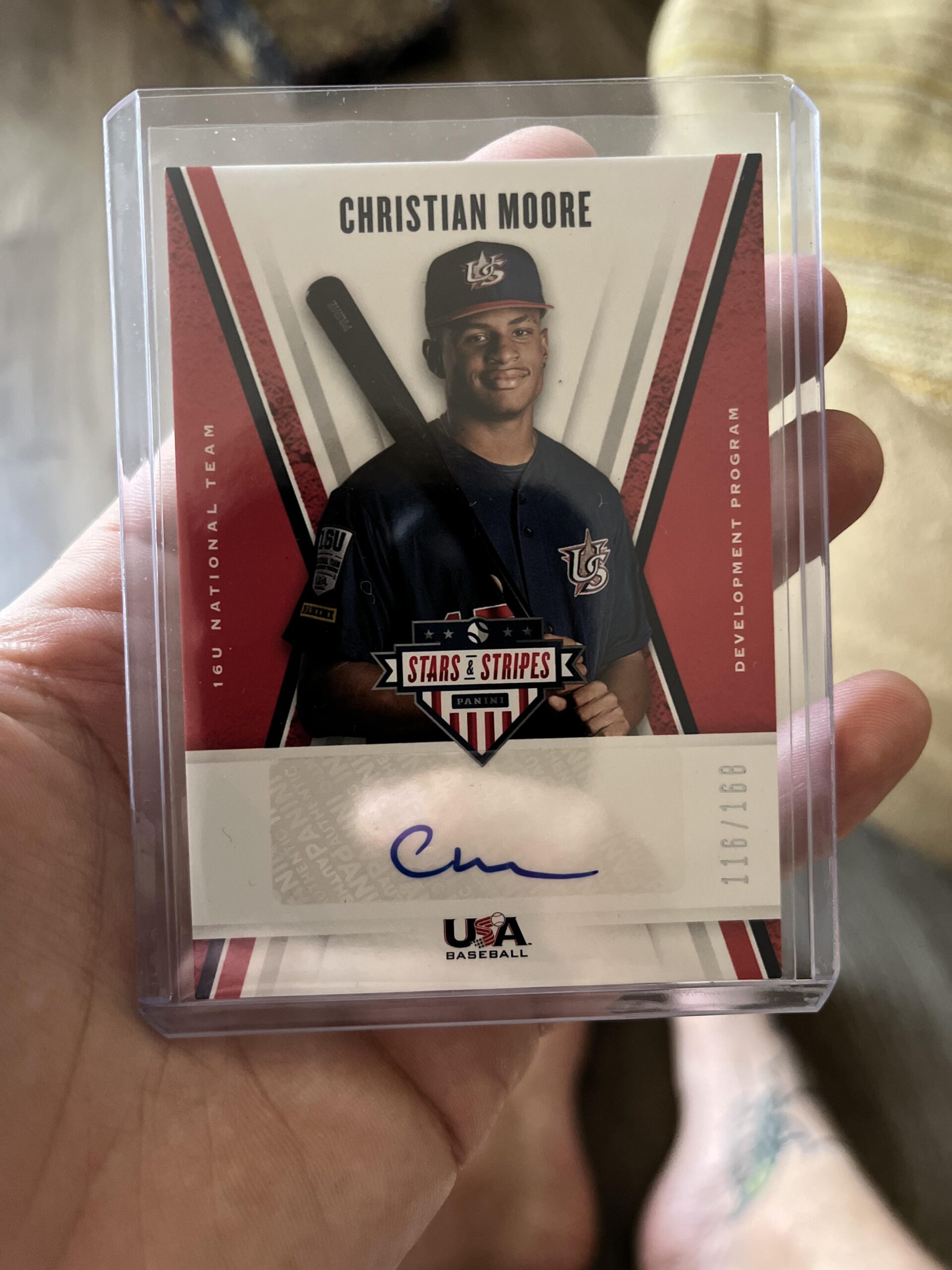Before last week, Barry Enright was perhaps most famous in Los Angeles Angels lore for giving up a 19th-inning walkoff homer in April 2013. In fact, when Enright was named pitching coach on Nov. 21, he jokingly said he stayed off social media in case fans brought up his less-than-stellar seven-game tenure with the Angels a decade ago.
Enright is in his first go-round as a major-league pitching coach. He spent the last two seasons as assistant major-league pitching coach for the Arizona Diamondbacks. The 37-year-old worked under Brent Strom, the Diamondbacks pitching coach who is widely considered to be among the best in the profession.
Enright spoke with The Athletic for a Q&A. He was candid about the interview process and his perspective on the team’s struggles last year. He discussed Angels pitchers on an individual level and gave insights as to what he believes will get them to reach their full potential.
The interview was lightly edited for length and clarity.
What was the process to get hired, and where’s your head at now that you have gotten the job?
It happened really fast, to be honest with you. They called me on a Thursday, I came in on a Friday morning. Sat down with Perry (Minasian), with (manager Ron Washington), (advance scouting director) John Pratt and (research and development director) Michael Lord. I’d just got done interviewing with Baltimore. It was on Zoom calls, and it was a great experience for me. My first actual interviews sitting in a room. I’d obviously talked with (Diamondbacks manager) Torey (Lovullo) and (D-Backs pitching coach) Brent Strom when I was being added to the major league staff with the Diamondbacks. But nothing that was really an interview.
Perry was awesome. He said, “I want you to be yourself. I’ve heard a lot of great things. Don’t tell us what you think we want to hear. Tell us who you are and what you want to do coming in.” I told him I started coaching in 2019. On a personal level, I fell in love with it from pitch one. I didn’t know how I would respond coming out of playing, just being a competitive guy and obviously liking to pitch and the turmoil that comes with it. And most of the time as a player, everything revolves around you. And in coaching, it is pure servant leadership. For me with these guys, it’s all about developing relationships and seeing it through their eyes. And drawing from experiences that you’ve had in your playing career.
For me, especially on the latter end of my big league career, I had a lot more failure than I did success. In the coaching side of things, being able to draw from those failures and understand the feelings — what you go through out there on the mound. The situational baseball things that you had success with or you failed in. They are drawn back in those moments.
I think the biggest thing is the timing of when to give (players) the nuggets and what they can and can’t handle. I talked to Perry and Wash and the other two about the relationships. The relationships with each player and an individual. That was probably the biggest thing for me on the coaching side that I did not know I’d enjoy. It was an extension of family to me.
I’ve (spoken with) about 10 guys and one of our catchers. Chatting with them and starting our relationships now, because I don’t want to be behind the eight ball and scrambling the first day walking through the spring training door. It starts now, and each and every one of them understanding my phone is always open, my door is always open. Our goal as a staff is to create that culture. To be able to have the player driving the bus.
On the X’s and O’s side, I had probably 10 hours to dive into the Angels staff. As a whole, the staff, you can kind of see the picture that was being displayed the last few years. They were (around) sixth in swing-and-miss. But the pitchers were (around) 20th in strikeout percentage. There’s a disconnect between the strikeout percentage and the miss that they were creating. And then you go look at the counts. They are 20th in first-pitch strikes and 16th in 1-1 strikes. For me, an extremely important part of my philosophy is dominating counts and the race to two strikes. That gives you the ability to use that miss that you are creating.
We went through this as a Diamondbacks organization two years ago. Tracking on Edgertronics (high-speed video cameras) and all the pitch shapes and all the shiny tools that you can use that are extremely valuable. But you chase those things and forget that you’re still on that mound, and you’re still 60 feet, six inches away. And what you have to do to get that guy out that day. It seemed like they were chasing different shapes.
I saw (Reid) Detmers, I saw (Griffin) Canning, I saw (Patrick) Sandoval having two or three different sliders. A few different breaking balls. A cut slider. Detmers had more of a sweeper at times that blended in with his true slider. And sometimes blended down to what the curveball looked like. It seems like there was a lot of experimentation without the potential of them understanding that you need to get into 0-1 and 1-2 counts.

Reid Detmers was among the Angels pitchers Barry Enright saw pitch against his former team, the Diamondbacks. (Rob Leiter / MLB Photos via Getty Images)
Dominate the race to two strikes. I think that there’s a lot of upside to the pitch development things that they did. It’s just getting back to the basics. Each and every day of what makes the guy tick. (Understanding) how the catcher’s involvement is going to be in that as well and be able to drive the bus for them. And getting back to more of the pitcher’s strengths over the hitter’s weaknesses.
That’s going to be my job. Getting to know these guys even better than they know themselves. I’m going to ask that of the catchers as well. As I explained to (catchers) Logan (O’Hoppe) and Max (Stassi), I love to say that we’re all bulldogs, but we also as a pitching staff can be prima donnas. And we can be excuse-makers. And we can be out on that mound and feel sorry for ourselves and it’s all our job to get rid of those things. The catcher is extremely valuable in those situations to be able to be their best self for those pitchers.
It’s hard to peg what your true philosophy is. Because I see pitching as an art, with a blend of the science. I would like us to be more data-informed than data-driven and be able to use our tools around us to be able to improve each and every player.
It sounds like you’ve done a ton of research. Have you shared this stuff with the players that you’ve spoken with?
I have. I’ve chatted with Detmers, I’ve chatted with Canning, I’ve chatted with Sandoval. I have a call a little bit later with (Chase) Silseth. I’ve talked with O’Hoppe, and I have a call (Wednesday) with Stassi. We haven’t gotten into the X’s and O’s yet, they just started their throwing program. I actually went to the Oregon-Arizona State football game with Tyler Anderson. He’s in our friend circle. Our kids go to the same school. I played with (Carlos) Estévez. He was my roommate in 2017 in Colorado. I played with (Mike) Trout when he first came up.
There’s an interesting blend of playing with these guys, and now coaching them. I’ve always been warned, don’t get too close to players. And I always said BS to that. I think the deeper your relationship gets, the more they trust you. The more you’re able to implement things and move the needle. I think as long as you are always able to tell them what they need to hear, that’s what is the separator. They understand that I’m there for them, through thick and thin.
How close are you with Mike Trout, since you overlapped with his his rookie year?
We golf all the time. He texted me immediately when the news came out with an open eyeballs emoji. I texted him back with another emoji and said, “Yep, it’s true.” And he said, “I’m going to start needing 20 strokes on the golf course again.” And I told him, “You’re not sandbagging my ass again, I know how good a golfer you are as well.” We’ve been friends for a long time.
The weird part, which we joked about over text, was that he butt-dialed me about a month and a half ago. I said, “Trouty, you need something? You trying to golf?” And he was like, “No, sorry man. Butt dial.” And then like a month later, I’m on staff with him. I love Trouty. We were always good friends. Me, him (Garrett Richards), (Mark) Trumbo, (Peter) Borjous. I have a lot of the Angel guys still within the network.
What was it like working alongside a legend in Brent Strom?
It was truly invaluable. The guy has been through everything. The pinnacle of winning a World Series. He’s lost the World Series as well. He’s been through being a pitching coordinator, and, as he describes it, being fired from all these different jobs and being told no. And obviously now has earned being one of the best pitching coaches in the game. And his knowledge of all things, especially delivery, is impeccable. It was great for me to learn from because it always felt like you had a foundation. But you’re always seeking more. And the way he would stand up and give presentations. And all the different stuff of teaching and learning, it’s like a fire hose.
It’s almost like sometimes you have to slow him down because he has so much knowledge. I realized who he was in those first few months because I got an email from him at 3:03 in the morning about Madison Bumgarner. His love language was knowledge.
The unparalleled knowledge that he had, and that he was willing to share. And his work ethic at an older age. The same thing with meeting Wash. His charisma — obviously he’s a different person than Strom — but his ability to want to work and put in the effort each and every day, is just something that you admire. That’s what I admire most about Stromy.

Renowned pitching coach Brent Strom was a mentor for Barry Enright. (Rich von Biberstein / Icon Sportswire via Getty Images)
I’ll definitely still use him as a resource. I told him on our phone call. He was like, “You’re ready for this. You’re going to be great.” I said, “I’m still going to be bugging you. I’m still going to call you and ask you questions.” Just being able to have that as a resource is something that not everyone gets. I’m extremely lucky to have that.
It sounds like from hearing you talk about the team that you believe the pitching could and should be better than it’s been. How do you view this young core? Is there a strong pitching staff as things are constructed?
With seeing Detmers, that guy, we’re going to make him into a star. I have full confidence that that guy has the ability to be a star. Left-handed pitcher. Great velocity. Ability to spin the baseball. It comes into consistency, command and knowing himself better than anyone else.
He needs to be able to pump strikes and get ahead of guys. There’s times, watching righties, his inability to throw the breaking ball under the zone or into the chase counts, once he got into the two-strike counts. A lot of arm-side misses. Things like that, there’s pieces throughout the delivery that I think can be sharpened up that are very, very easy. He’s kind of a stiff mover and a short strider. And he kind of cuts himself off at times. I need to dig in with him and see how he moves first before I throw any huge recommendations down. But it wouldn’t be an overhaul at all. It would be a small, little adjustment to get him accelerated into his foot strike to be able to create a little bit more consistency at release. His overall athletic ability and ability to spin that baseball should come out on a more consistent fashion.
I was extremely impressed — and I told this to Perry and Wash in the interviews — just watching Griff throw against (Arizona) when he kind of gave it up in the first two or three innings. He went six innings and 120 pitches and he gutted it out and kept them in the ballgame. I was like, “This takes a bunch of balls to be able to keep their team in the game. And he’s doing really well.” Like all of a sudden, you blink your eyes and there’s no more baserunners. It showed a lot of heart for me and I think there’s a lot to build off of here. There’s some slider locations to right-handers that I’ll dig in with him. He does a lot better against lefties, burying that thing under for the two-strike counts.
Righty, he leaves it a lot over the plate, which plays into a little bit of a lack of miss. And then we’re going to have to get something going the other way to dominate the inside part of the plate in the counts that we need to right-handed hitters to make sure that they’re not eliminating half of the plate. It seemed like at times they just leaned out over. It took his slider away and they just challenged him to throw in or have something moving in.
Anderson last year, and even chatting with him. They chased the miss last year, which helped that stat. But it overexposed a lot of his pitches. He’s a product of all his parts. Obviously, he’s got a great changeup and it needs to be good. But the more you overexpose that changeup, the more you throw it earlier in games, you’re not going to get deep in the game. If you have two out, nobody on, you throw it five times to the three-hole hitter in the first inning just to get a strikeout. You’re going to be struggling in the seventh inning when you want to throw it with two outs and the bases loaded.
He’s going to be relying more on deception and everything looking the same. Playing front to back in his speed and getting back to what they did really well with the Dodgers in 2022. And chatting with him it seemed like he just kind of chased some pitch movement at times and got away from being himself. He took ownership and said that it frustrated him and said he wants to get away from it and wants to get back to just competing and pitching and the art of that.
Even Logan … He said that there was basically a script they had to follow. I think that at times, being handcuffed and not being able to use your eyes, and learning through moments. Because we’re not always going to make the right decision. I told Logan as well — you’re going to come through and think you see something. And you’re gonna call something and you’re gonna get (beat). We’re gonna have a discussion about what you see, what you feel, what you learn. And it’s not going to be “What the hell are you doing? Don’t ever do that again.” It’s gonna be like, “We need to have these types of moments.” We do have a young catcher. We have some young starters that we’re going to need to talk through baseball situations with. And when to use your A stuff. And maybe when to go to plan B or plan C to get back to plan A. What do you do when you don’t have your best pitch that day? There’s a lot more than just the X’s and O’s that go into it.

Catcher Logan O’Hoppe, left, said to Barry Enright “there was basically a script” the Angels pitching staff had to follow in 2023. (Brian Rothmuller / Icon Sportswire via Getty Images)
I told Anderson: “I’m not forcing anything on you. Obviously, there’s a natural piece of being a leader as an older guy. You’ve been through a lot of years. You’ve been through ups and through downs. I want you to be a sound voice and a steady voice for these guys. You’ve got a few younger lefties on this staff. Let’s make sure that we are the example when I’m talking about culture. When I’m talking about expectations.”
Things like that. He seemed very much on board with that.
Going into Sandoval, I had a short conversation with him. The two biggest pieces for me is don’t be the jack of all trades and master of none. What that means is not clearly defined yet, because I’m gonna have to go in and have a chat with him. What is your best feel? What are your top four pitches? What have we just learned? What are we excited about? And then cut out the fat, and hold on to the non-negotiables, and go from there. And be able to refine to be really good at something first.
I told him, I want to get your WBC swagger back. When you were playing them, there was a swagger to you. I know there’s 162 games and to be able to do that every single day is just not feasible. But to be able to find that joy back, to make you your best self on that rubber is going to be important to carry yourself, your presence, your confidence out there. We’re going to need him to be great too. He’s got big-time potential in there, I think, and hopefully, some of that breaks out this year.
It sounds like you thought the Angels were too scripted in years past and didn’t have the priority on actually getting hitters out. Do you feel like there needs to be less of a set script way of operating?
Yeah, I’ve definitely gotten feedback from all different departments and areas about that. I’ve even had guys that took ownership and said like, “Hey, we did this way too much.” One of the biggest things in the interview they said to me — which was great — they said, “Barry, you have full autonomy to say no to us. And we’re going to need you to do it. Because we’re going to come down with suggestions.” I told them I want all the feedback. Throw the data at me. I’m going to ask questions. I’m going to ask for data sets on this. I’m gonna ask guys if their arm angles have dropped. I’m gonna ask, “How is he moving?” I’m going to ask all things and absorb it, go through it and see where it applies. And then simplify it and dumb it down.
But they also said, when we throw suggestions at you, we want you to say no. That is their safeguarding against them understanding the last few years and where they have been. I told them I feel like I’ve gone through this experience in 2021 and 2022 as an organization with the Diamondbacks. … There were times that we chased the TrackMan (a digital baseball scouting platform). There were times that we chased the pitch shaping and pitch design and how cool that pitch looked on a TrackMan. “Oh my gosh, it has 20 inches of sweep. Oh my gosh, it has 22 inches of ride.”
But it was never a strike and it was breaking out of hand. And eventually, a hitter tells you if it’s a good pitch or not. Your ultimate feedback is that strike zone. And I think that was what was forgotten a little bit. It’s not new school. It’s not old school. It’s baseball. New school and all the tech, you need it. There’s so many different ways that you can look through the pitch data to help with usage to help with pitch location and to help the pitch design. But if you forget that you’re out there to get the batter out, you’re behind the eight ball.
I think that’s what (people) see as old school. No data, you go out there blind and you just go grab your balls and go get them. There’s an aspect to that, but you’re also extremely dumb if you don’t use TrackMan and Edgertronic and all the resources that are given to you.
Do you want to be involved in minor-league pitching development?
With (minor-league pitching coordinator Dom) Chiti, I told him that I want to dive in with him. I’m definitely going to come in. I need to have a phone call with him too. I need to have a phone call with our farm director. And just, I want to hear more. Instead of me telling them all about me, just hear about the successes and failures and where they think we can get better on the pitching side.
I know that one of the things that I implemented — and it’s not a big implementation — but on the Diamondbacks side of things was, we used Slack (a group messaging application). For everything. When using Slack, every player throughout the organization had their own Slack channel. And so all their bullpen notes went under that Slack channel. All their grip changes went under that Slack channel. If they were struggling with something, every single piece about that guy was updated. So when he went up a level, there was a backlog. (The pitching coach then) already knows what’s been tried, what hasn’t, where he got to today, the different grips that he’s settled on. All these different things. There’s a backlog to it.
That’s the only thing I do want to implement throughout the minor leagues and the big league side so that we’re all on the same channel. We’re all able to see the communication with each guy and see how guys are developing. I want to learn (about) everybody, is basically the point. I think once I get to know and familiarize myself with everyone that’s in this organization, I’m going to feel much more comfortable.
(Top photo of Barry Enright with the Angels in 2013: Jamie Squire / Getty Images)


![[Ward] Carlos Estévez and Yimi García are of similar value on the trade market as rental relievers who could profile in some high-leverage spots — return for García comes in upper-level fringe prospect and mid-level project bat which may be similar to return for Estévez [Ward] Carlos Estévez and Yimi García are of similar value on the trade market as rental relievers who could profile in some high-leverage spots — return for García comes in upper-level fringe prospect and mid-level project bat which may be similar to return for Estévez](https://haloshub.com/wp-content/uploads/2023/07/minilogo.png)

